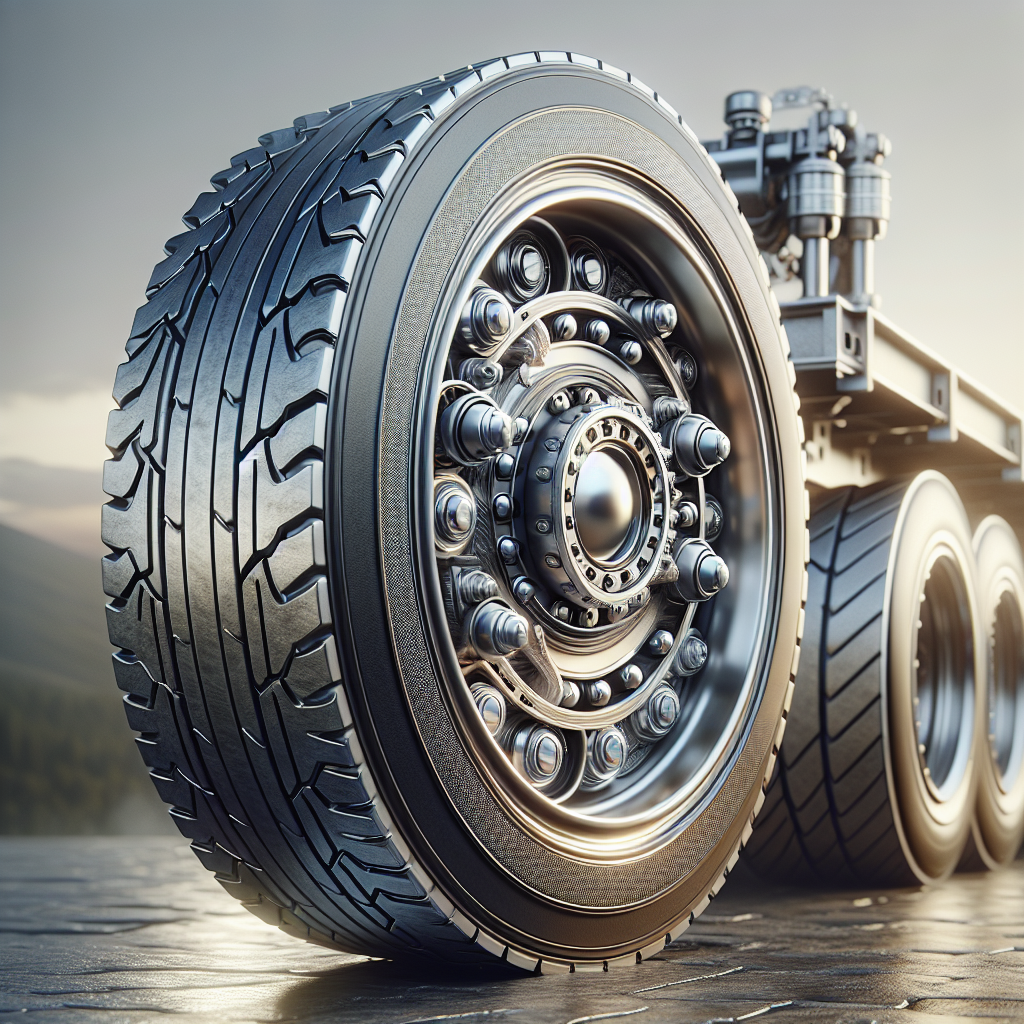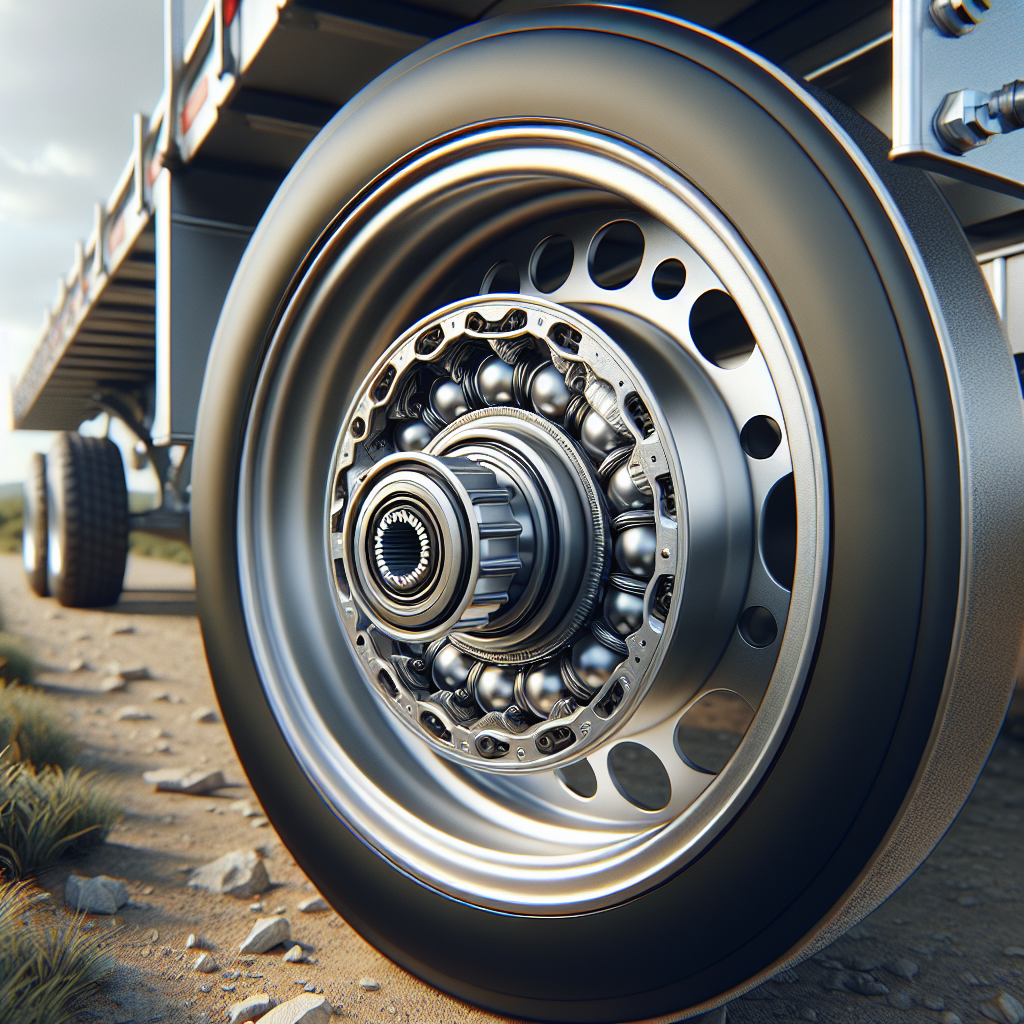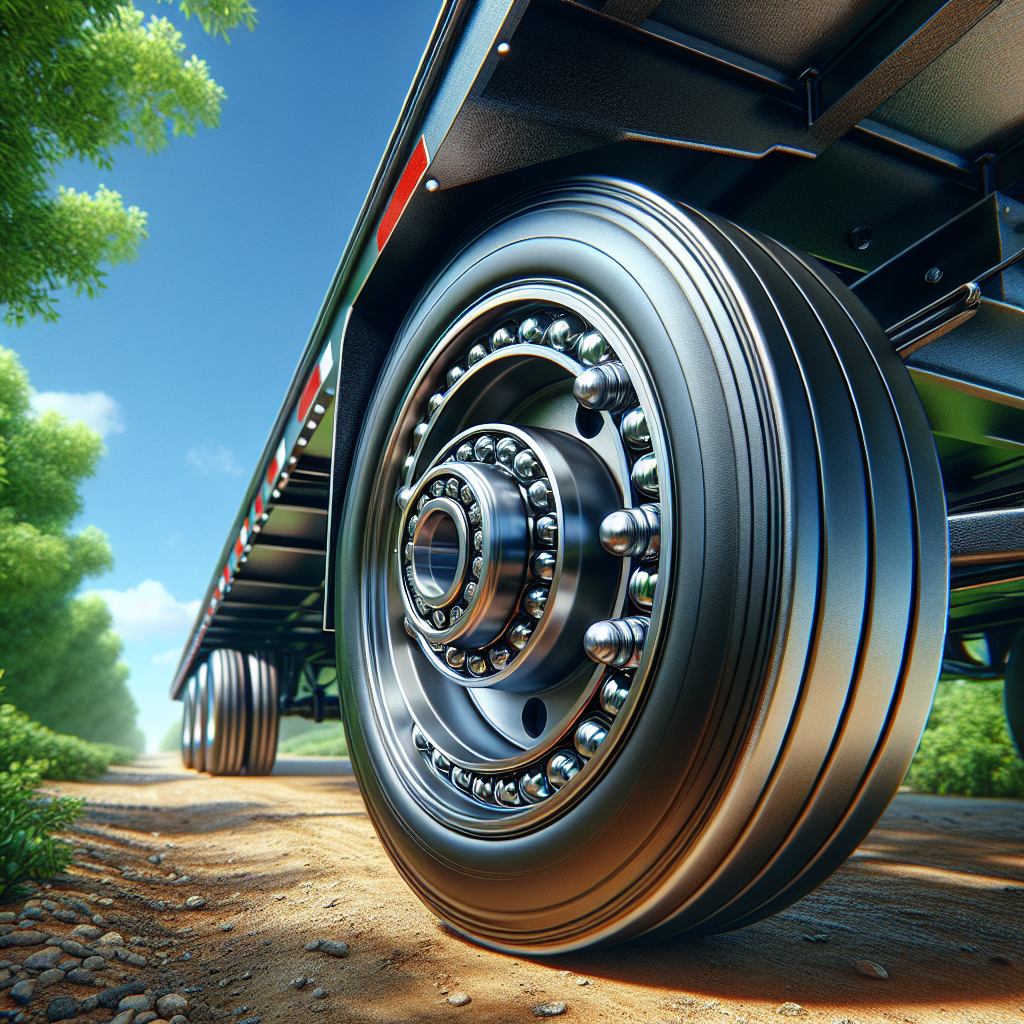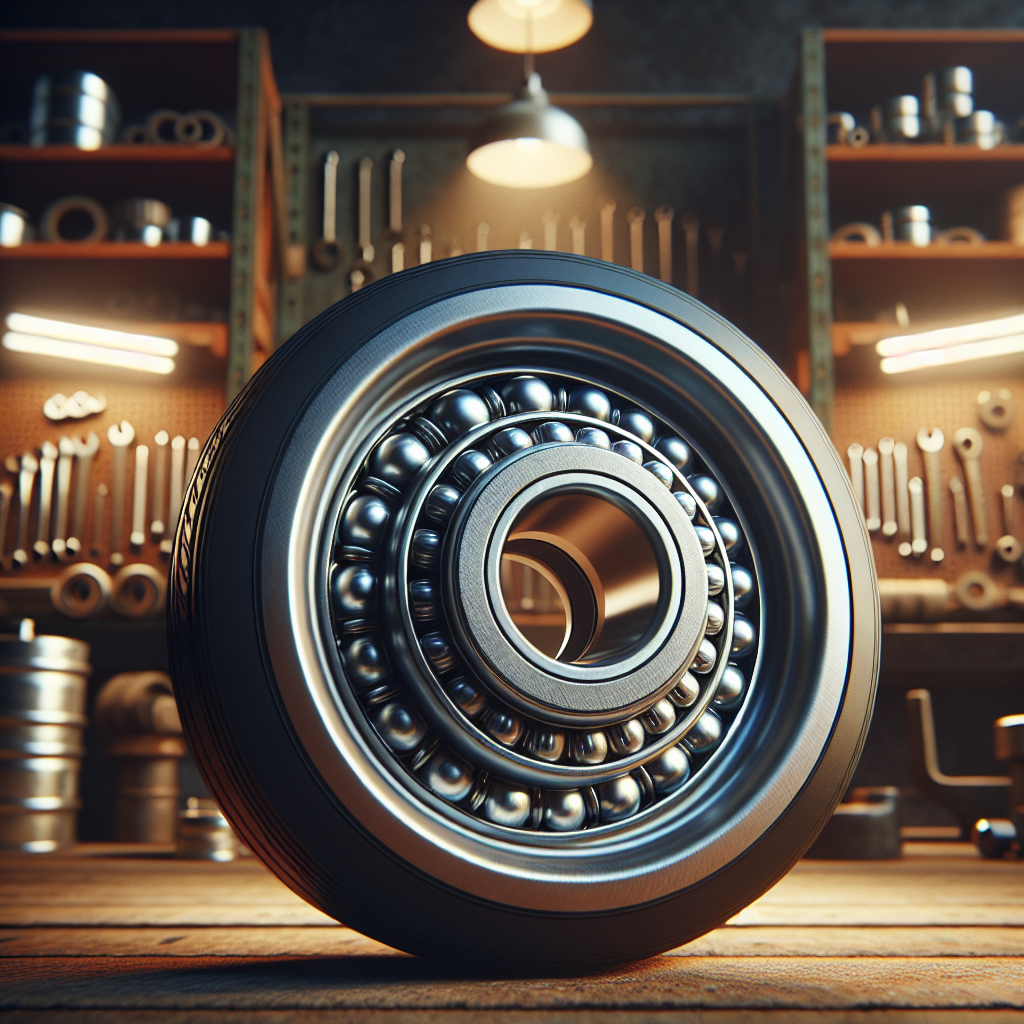When it comes to trailer maintenance, understanding the importance of wheel bearings is crucial for ensuring safety and performance. Wheel bearings play a vital role in the smooth operation of your trailer, supporting the weight of the load while allowing the wheels to rotate freely. Neglecting their condition can lead to serious issues, including overheating, wear, and even catastrophic failure.
Here are a few reasons why checking trailer wheel bearings should be a priority:
- Safety: Faulty wheel bearings can result in reduced braking performance and increased stopping distances, posing a significant risk on the road.
- Longevity: Regular inspection and maintenance extend the life of your trailer. Properly functioning bearings reduce friction and wear on tires and suspension components.
- Cost-effectiveness: Addressing minor issues early can save you from costly repairs down the line. Replacing damaged bearings is far less expensive than repairing a whole axle or trailer.
By understanding the importance of trailer wheel bearings and monitoring their condition, you can avoid unexpected breakdowns and ensure a smoother towing experience. Tow with peace of mind, knowing that trailerwatchdog is standing guard.
Signs of Worn Out Wheel Bearings to Watch For

Identifying worn out wheel bearings early can save you from potential hazards and expensive repairs. As your trailer's bearings age or become damaged, certain signs may indicate that it’s time for a closer inspection. Here are some key symptoms to watch for:
- Unusual Noises: A common indicator of failing wheel bearings is a grinding or humming noise that increases with speed. This sound often indicates that the bearings are worn and need attention.
- Vibration: If you notice excessive vibration in the trailer while towing, it could be a sign of loose or damaged bearings. This can lead to instability and should be checked immediately.
- Heat Generation: Overheating wheel bearings can cause seals to fail, leading to grease leaks. If you touch the hub and it feels excessively hot, it’s time to investigate.
- Play in the Wheel: If you can move the wheel side to side or up and down, it indicates that the bearings may be worn out or improperly adjusted.
Being proactive in recognizing these signs can help you maintain the integrity of your trailer and prevent more serious issues down the road.
Essential Tools for Checking Trailer Wheel Bearings
To effectively check your trailer wheel bearings, having the right tools on hand is crucial. A well-equipped toolbox not only simplifies the process but also ensures that you perform the checks accurately. Here’s a list of essential tools you’ll need:
- Jack and Jack Stands: To inspect the wheel bearings, you’ll need to lift the trailer safely off the ground. A sturdy jack and jack stands will provide the support necessary during inspection.
- Wheel Chocks: These are vital for preventing the trailer from rolling while you’re working on it. Always use wheel chocks on the opposite wheels from the ones you’re inspecting.
- Socket Set: A complete socket set will help you remove the wheel hub assembly easily. Make sure to have both metric and standard sizes on hand.
- Grease Gun: If during your inspection you find that the bearings need lubrication, a grease gun will allow you to apply the right amount of grease to the bearings.
- Magnifying Glass: A magnifying glass can help you examine parts closely for any signs of wear or damage that may not be visible to the naked eye.
Having these tools ready will make your inspection process smoother and more efficient, allowing you to check your trailer wheel bearings like a pro.
Step by Step Guide to Checking Wheel Bearings

Checking your trailer wheel bearings is a straightforward process if you follow these step-by-step guidelines. Regular checks can help prevent significant issues and ensure that your trailer operates safely. Here’s how to do it:
- Prepare Your Workspace: Ensure you’re working on a flat surface. Engage the parking brake and use wheel chocks on wheels opposite to the ones you are inspecting.
- Lift the Trailer: Using a jack, lift the trailer until the wheel is off the ground. Secure it with jack stands for safety.
- Remove the Wheel: Using your socket set, remove the lug nuts and take off the wheel. This will give you access to the hub and bearings.
- Inspect the Brake Assembly: Before getting to the bearings, check the brake assembly for any signs of wear or damage.
- Check the Bearings: Carefully remove the hub from the spindle. Inspect the bearings for any signs of wear, discoloration, or pitting. Rotate the bearings to feel for any rough spots.
- Clean and Lubricate: If the bearings are in good condition, clean them with a suitable solvent, dry them, and then apply fresh grease using a grease gun.
- Reassemble: Once everything is inspected and lubricated, reassemble the hub and wheel. Make sure to tighten the lug nuts in a crisscross pattern to ensure even pressure.
- Lower the Trailer: Carefully remove the jack stands and lower the trailer back to the ground.
By following these steps, you can perform a thorough check of your trailer wheel bearings and help ensure a smooth towing experience.
Tips for Maintaining Trailer Wheel Bearings Effectively

To keep your trailer wheel bearings in peak condition, regular maintenance and mindful practices are essential. Here are some effective tips to ensure longevity and optimal performance:
- Regular Inspections: Schedule routine checks of your wheel bearings as part of your trailer maintenance. Look for signs of wear, moisture, or dirt accumulation.
- Keep Bearings Clean: When inspecting or servicing, ensure that you clean the bearings thoroughly. Dirt and debris can cause premature wear and tear.
- Use Quality Grease: Always use high-quality grease that is suitable for the type of bearings and the conditions in which you operate your trailer. This helps in providing better lubrication and protection.
- Monitor Temperature: Keep an eye on the axle temperature during trips. Overheating is a sign of potential failure, so installing a monitoring system can be beneficial.
- Check for Play: After reassembly, check for any play in the wheel bearings. A properly adjusted bearing should have no movement.
- Avoid Overloading: Ensure that your trailer is loaded within its recommended weight limits. Overloading can put excessive strain on the wheel bearings and lead to failure.
- Store Properly: When not in use, store your trailer in a dry place to prevent moisture buildup, which can damage bearings.
By implementing these tips, you can effectively maintain your trailer wheel bearings and enhance the overall safety and reliability of your towing experience.
When to Seek Professional Help for Wheel Bearings

While many trailer owners can perform basic maintenance and checks on their wheel bearings, there are certain situations where seeking professional help becomes crucial. Recognizing these circumstances can save you from significant expenses and ensure your safety on the road:
- Unusual Noises: If you hear grinding, squeaking, or thumping noises coming from the wheels while towing, it may indicate a serious issue with the wheel bearings that requires immediate attention.
- Excessive Heat: If you notice that the wheel hubs are excessively hot to the touch, this could be a sign of bearing failure or insufficient lubrication. Consult a professional to diagnose the problem.
- Visible Damage: Any signs of visible damage, such as cracks or wear on the bearings or seals, should prompt a call to a technician.
- Frequent Adjustments: If you find yourself continually needing to adjust the wheel bearings, it’s time to seek professional input to avoid costly repairs in the future.
- Lack of Confidence: If you're unsure about how to properly check or maintain your wheel bearings, it’s wise to consult a professional to ensure that your trailer is safe to operate.
Remember, addressing wheel bearing issues early on can prevent catastrophic failures down the road. Tow with peace of mind, knowing that trailerwatchdog is standing guard.

